One minute I’m standing at the kitchen sink. Next thing I know I’m waking up flat on my back on the dining room floor, disoriented and confused. How did I get here?
That Monday didn’t start out awesome. It had been raining for a few days and overnight it was an all out storm. LA rains have become a big trigger for me because our house has a wrecked roof, lots of water damage and a big mold issue. So every time it rains I worry about new damage and when the insurance company is going to come through for us.
Most of that night was lying in bed listening to the rain hammer the roof and echo through the house. I’m not sure why I was waiting for the alarm to go off — I should have just gotten up to see which rooms were flooded again. When I finally got out of bed around 6 am, we did have leaks, but it wasn’t as bad as previous times. Phew.
I was mopping up the water with old towels when the power went out around 6:30 am. Outages have been another on-going problem of living in Laurel Canyon. For twenty years, it was all fine, but since 2020 it seems like we are literally in the dark every few months.
While living in the hills is quite beautiful and mostly peaceful, it also means that we have poor cellular service. No power means no wifi which means I can’t effectively use zoom. And I had client meetings that day starting at 7:30 am. I reluctantly canceled the first one, but what about the other nine zoom meetings I had that day?
A PLAN OF ACTION
Fortunately, my husband Chuck and I share a studio in downtown Los Angeles. He uses the space for his work as an artist and I love to host career related workshops and pop-up events. I packed up my computer and a notebook lickety split, grabbed an apple and hit the road to head to the Brewery Artist Lofts.
It took about an hour to get downtown because of the weather and frenzied LA drivers, but I still had about 15 minutes before my next zoom. Since I left in such a rush from the house, I didn’t have breakfast so I perused the cupboards. Yikes. We had nothing to eat except my gigantic envy apple. Oh well.
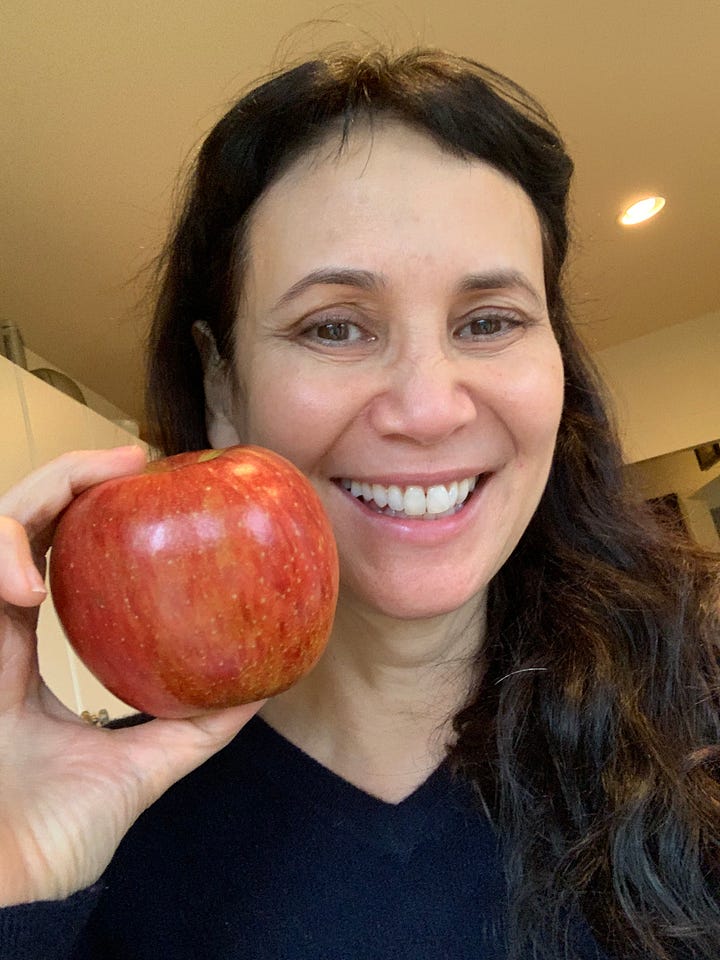
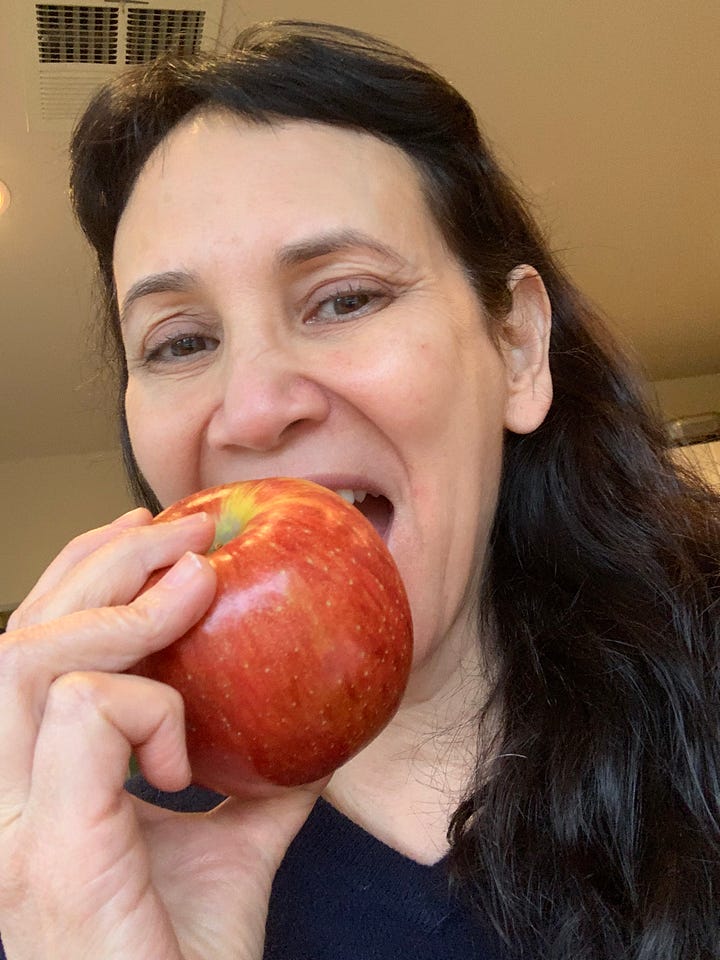
The work day went fine except for the part where I had double booked …. three different times. (If I could fire myself for being a bad assistant I would, but I don’t have cash flow to hire someone to replace my sorry ass.) I pulled out my ninja scheduling skills and was able to re-book everyone for the same day, but it meant I had no down time. It was back to back to back.
By the time I got home around 7 PM, I was depleted from lack of food and burning through a lot of mental and emotional energy. Chuck had prepared my favorite comfort meal of chicken, rice, and broccoli. He’s a godsend.
Eating was a strange sensation. I knew I was hungry, but I didn’t feel hungry. I still ate everything on my plate then took a hot shower to wash away the stress of the day. Got into my jammies and went to the kitchen to chat with Chuck and my eldest daughter Mitzi.
It was nice to have an easy catch-up and as I relaxed more, I got sleepy. It was time to hit the hay. I stood up from our little Ikea kitchen table and had a rush of lightheadedness, which does happen from time to time. Typically the lightheadedness goes away after a few moments, but not that night. I was acutely conscious of losing my peripheral vision.
I took some deep breaths to clear my head, and walked over to the kitchen sink where I placed my hands on the counter to steady myself. The desire to go to bed morphed into “I need to get to bed and lie down.” At the same time, I knew I wasn’t going to be able to walk on my own. I thought maybe I could crawl.
At that point, I laid my head onto my hands believing that I just needed another moment to push away the creeping darkness. I had a vague, very distant recollection of hearing a loud bang.
The next thing I remember I was trying to name what I was seeing. “Oh, that’s a ceiling. That’s a wall. Oh, that’s the wall of our dining room. Oh, Chuck and Mitzi are talking to me. I hear their voices, but what are they saying?”
I had fainted.
WHAT HAPPENED
Chuck and Mitzi filled in those 1-2 minutes I had lost. They saw me stand up, they heard me say I was light headed, they saw me walk to the sink, they saw me go pale, then they saw me start to crumble. That’s when the loud bang occurred. I had dropped my metal water bottle, which I wasn’t even aware I was holding. They both grabbed me before I could hit the floor and tried to walk me to the bedroom. My legs and feet did not cooperate and dragged on the ground. When my head and chest slumped, they eased me to the ground and I immediately woke up and said, “Hi!” Which I don’t remember at all.
They helped me get to bed and we all agreed that I hadn’t fueled my body properly that day. Combining that with all my energy going to digesting a big meal and a relaxing hot shower took the wind out of my sails.
I only realized that I shouldn’t trivialize the situation when my zen husband admitted, "That was scary" and Mitzi, my calm cool rock star, suggested I consult my doctor.
I did call my sister Teresa who is a nurse. She said low blood sugar was the culprit but also highlighted how much stress I’d been experiencing. I guess I knew that, but hadn’t really clocked it because I engage in a lot of self-care, rest and relaxation which “should” counterbalance the stress:
I typically get 7-8 hours of sleep per night, and frequently 9 hours.
I exercise at Orange Theory (or a hotel gym when I travel) 3-4 times per week and hike frequently.
I eat well and (typically) on a regular basis. Granola, yogurt and berries for breakfast. Usually leftovers for lunch: a lean protein, a grain and a veggie. An apple as a snack. And then a decent early dinner around 6 — several hours before I go to sleep.
I do meditate, but not on a consistent basis. A goal for 2024.
I journal almost every day.
Massages and facials make it into a monthly rotation.
My husband and I make it a point to watch movies or shows together a few nights each week while we consume Trader Joe’s movie popcorn.
There’s a lot of pride in my routines - thus I have listed them out in detail here! However, I had a HUGE epiphany in sharing this story with my therapist. I’ve been treating self-care and rest and relaxation as a to-do item. You can see it in the list I just made.
At the risk of embarrassing myself, I have a detailed daily to-do list where I track EVERYTHING. What doesn’t get done, gets rolled to the next day. So when I go to Orange Theory that gets checked off. Along with watching my current favorite show, reading for pleasure, giving myself an at-home facial. While I enjoy these things, I also actively schedule and mark when I’ve accomplished them.
Notice the use of the word “accomplished” —- rest and relaxation are not things to be earned, deserved or achieved. And yet, that’s how I’ve been treating them and feeling really good about myself along the way.
Big whoops.
JUST BECAUSE STRESS IS NORMALIZED DOESN’T MEAN IT’S OK FOR YOU
What’s happened as a result is that I have lost the ability to fully recognize my stress. Part of that is because I’ve been religiously checking off boxes of self-care, convincing myself that I’m doing rest right while skipping actually listening to my body.
The other part of not being able to fully recognize stress is due to social constructs. Stress has been normalized and internalized as part of my upbringing and my work in the entertainment industry. Now that normalization may be true for other industries – it’s most definitely true for entertainment. Here are some examples of common normalized work and career expectations that are significant stressors:
Work for free under the guise of doing “spec” work. This isn’t just about writers. As a producer, I constantly work for no money and give away my creativity, expertise and relationships with the hope it will lead to a paycheck. Some day.
Internships have been a long-time institutionalized form of free work. While there have been changes and advances to this system, it still exists.
Another abuse of the system is requiring interns to receive school credit for their internship - which is a fee they have to pay for! So not only are they out of pocket for tuition, they’re also not receiving a (fair) wage.
Frequently, interns must use their own computers, phones and vehicles to perform company business without remuneration.
Work for little pay. It’s a kind of privileged hazing technique that’s supposed to prove people have the stamina and passion to “go the distance.” I know so many folx in entry level entertainment jobs who are being subsidized by their families and / or have second jobs because their gig simply does not pay their bills.
This is complicated by the dangling carrot that if the employee does well enough then they will get promoted. But they have to prove they are worthy of promotion by doing additional work outside the scope of their day-to-day responsibilities. This additional work is not paid for, it’s seen as the cost of receiving an opportunity. So they are working nights and weekends in an attempt to get recognized and bumped up.
And of course both internships and low-paying jobs deprive people from low-income families from opportunities to enter entertainment.
Receive unsolicited criticism and feedback with an open-heart and open-mind.
I know this is just the tip of the iceberg in terms of stressors, but I bring these three examples up because they are so common. As a result people are stressed out worrying about finances, career trajectory, loss of stamina and passion, screwing up and missing their chance at advancement.
Sadly, there’s an unspoken and well known belief that if you can’t take it, then get out.
STRESS SYMPTOMS
All this to say that a survival mechanism for many people, including me, is to ignore the stress. Inner dialogues may sound like this: It happens to everyone, it’s part of my job, it’s part of the industry so I’ll just deal with it by ignoring it, I’m actually taking action to de-stress, it’ll all be fine.
However, our bodies will not allow us to ignore stress. So if you’re experiencing any of the following symptoms, your body may be telling you that you are stressed out:
Physical Pain (I have a client who gets sharp pain in her shoulder during stress spikes, another experiences migraines, another’s back goes out)
Inflammation
Breathlessness
Brain fog
Dizziness
Vertigo
This list is nowhere comprehensive and doesn’t include aspects of mental and emotional health.
WHAT TO DO AND NOT DO
Listen to your body. When the stressors become too much, your body kicks into survival mode and forces you to slow or stop.
Don’t wait until you faint or are in excruciating pain. “Small” annoyances like a tight jaw or shoulders up to your ears or achy hands or feet may be signs from your body that the stress levels are rising.
Please do notice and name your stressors.
Don’t consider the symptom as the problem. My fainting was not the problem, it was a symptom of not fueling my body properly and being overwhelmed with stress.
Please consider whether the source of stress is something that you can remove from your life.
Don’t tough it out or compare yourself to others.
Please exercise healthy and effective coping strategies. My eating a bag of Trader Joe’s popcorn is weak-sauce on the coping front.
Don’t treat rest as something that needs to be “done” or checked off. That’s sorta the opposite of rest!
HARD TRUTH
Sometimes you can’t remove the stressor. I can’t stop the rain from falling.
What I can do is notice that when I see the weather report predicting rain, check in with my body. Yup, I’m feeling tension in my neck and jaw. I’m stressed that the rain will cause more damage to our not well home.
With that information, I can now talk to my husband about the stress and come up with an action plan. We brainstorm practical, tactical strategies to protect our home and I practice breathing techniques to release the tension.
At the time of writing this, which is five days post incident, I’m doing okay physically. I’ve experienced lightheadedness a few more times, but have not fainted. I am being much more conscious of fueling my body and taking breaks. I’m employing some new breathing techniques and have set a timer for mid-day to remind myself to meditate. I hate to stop my momentum during a work day, but after I meditate I can feel the difference in my mind and body. But it takes a lot of effort for me to open up the Headspace app.
BOTTOM LINE
Rest is not a to-do item; it's an essential part of our well-being that often gets overlooked in the hustle and bustle of life.
My recent experience of fainting served as a wake-up call, reminding me that stress cannot be ignored or pushed aside indefinitely. As I reflected on the factors contributing to my fainting episode, I realized that I had been treating self-care and relaxation as tasks on a checklist, rather than vital components of my overall health.
The normalization of stress in our society, particularly within industries like entertainment, can lead us to dismiss our body's warning signs and push ourselves beyond our limits. But ignoring stress doesn't make it disappear; it manifests in physical symptoms and affects our mental and emotional well-being.
Instead, we need to listen to our bodies, name our stressors, and prioritize rest as a non-negotiable aspect of self-care.
While we may not always be able to eliminate the stressors in our lives, we can develop healthy coping mechanisms and strategies to mitigate their impact.
So let's join forces and shift our perspective on rest from a checkbox to an essential act of self-preservation, honoring our bodies and minds with the care and attention they deserve.
JOURNAL QUESTIONS
Here are a few journal prompts to help you deepen your understanding of stress and your relationship with stress.
What societal norms and industry expectations do you see as contributing to the normalization of stress and how do they impact your perception of your well-being?
Have you had an experience when stress caught up to you? What happened? As you reflect on the situation, what advice would you give yourself? What best practices can you create to avoid it happening again?
What shifts in mindset and behavior can you implement to prioritize rest and self-care as essential practices rather than optional tasks to be completed?
How much do you relate to rest being a to-do item? What are your growth opportunities as it relates to coping with stress?
🙌🏾 Questions? Would you like additional support in accessing resilience? I offer private coaching sessions as well as in-person and virtual group work. Reach out directly here to set up a complimentary consultation.
If you’re resonating with what you’re reading, please consider subscribing. What’s that mean?
🙌🏾 You’ll receive regular emails (with lots of heart and a bit of humor) that share a tool or insight from my coaching practice.
🙌🏾 Typically the blog and blogcast will have a question at the end to provoke thought that supports you in your growth.
🙌🏾 Updates on offerings, free stuff, recommendations, referrals.
My blog aims to help people achieve their ambitious goals, their moonshot if you will. 😃 Oftentimes, though, we neglect an essential aspect of pursuing our dreams: the inevitable missteps, obstacles, and failures that come our way. Failing to acknowledge and process these losses properly can lead to imposter syndrome, burnout, low self-esteem, confusion, and even result in completely abandoning our dreams. 😟 That's why I strongly advocate for embracing grief awareness (along with other tools like values identification, knowing your why, sharpening executive function, habit forming, and more.) By doing so, we can effectively navigate challenges, regain motivation, and hit our moonshots. ✌🏾️ If you know someone who could benefit, please share this newsletter or recommend me to them. 🙏




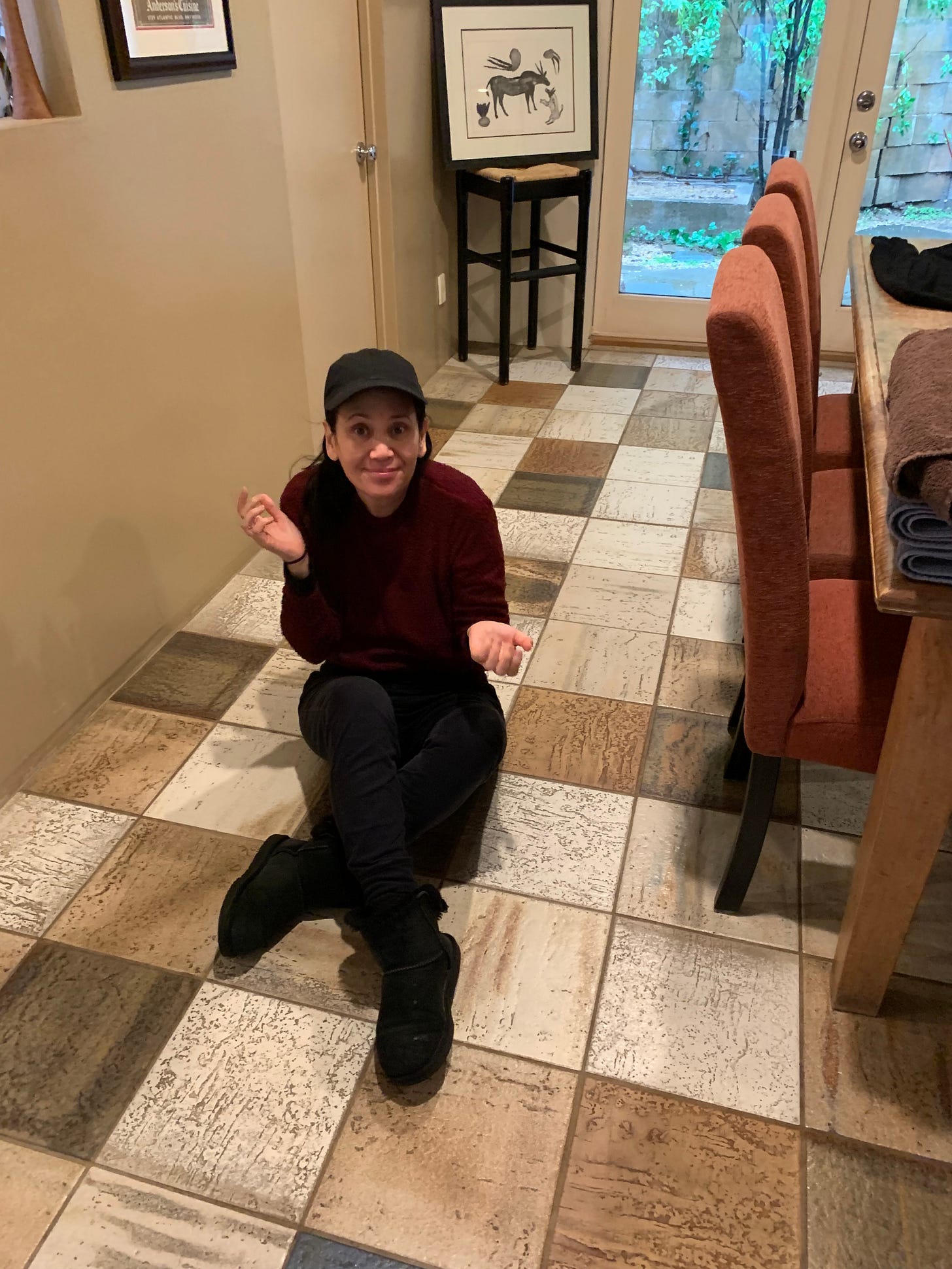




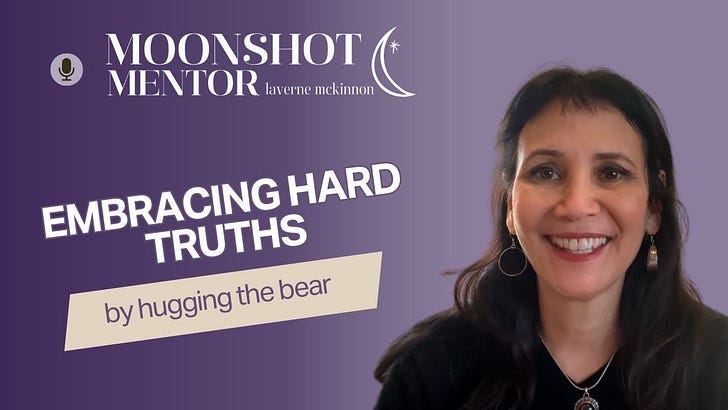




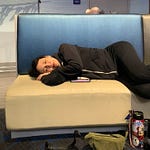


Share this post